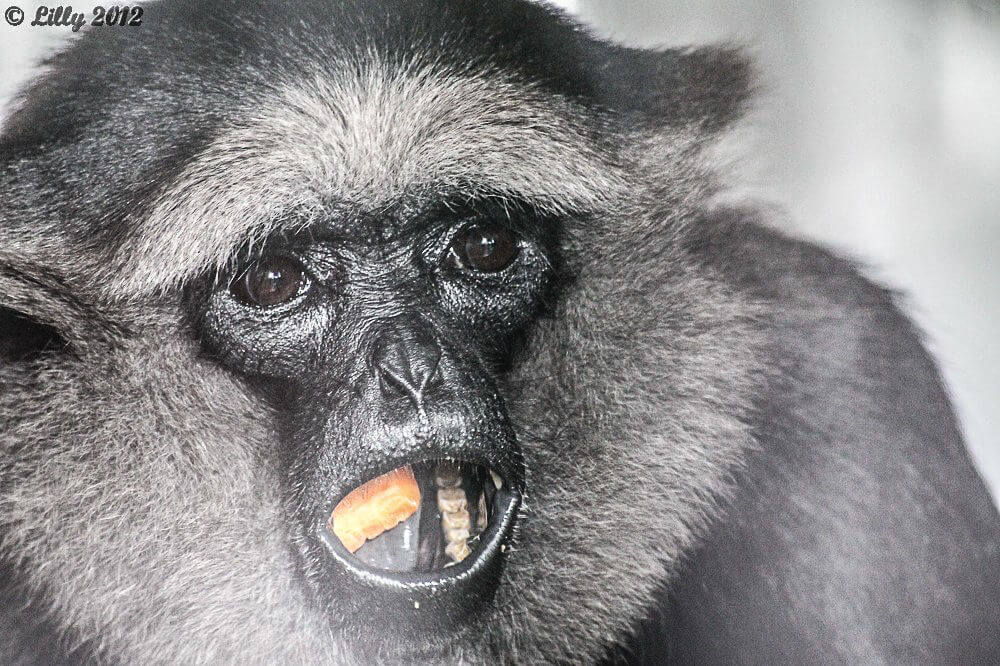
Muellers X Agile Gibbon Natural History
Size
These gibbons have a length of 40 to 60 cm, reaching weights of around 5 kg.
Habitat and Distribution
This hybrid species can be found in some areas of Central Borneo where the two species Hylobates agilis and Hylobates muelleri have overlapping ranges and will some times naturally cross breed. They mostly can be found in rainforest areas which have a high elevation.
Age
It is thought that in the wild they can live for up to 30 years however in captivity it is not rare for them to reach ages of around 45 years. They can take up to 10 years to reach sexual maturity.
Diet
This primate feeds largely on fruits (especially figs when available) and flowers. However, it does also consume a lot of leaf and vegetable matter. A very small proportion of their diet is made up of nuts & seeds and insects.
Groups and Breeding
These animals live in small groups of this hybrid species, however the groups may occasionally also include individuals of either one of the two true species. After breeding females will generally give birth to just a single baby which is not weaned until it reaches 2 years of age. This primate will only rear one baby at the time, meaning a single female will only breed once every 2 to 3 years.
Threats
The true numbers of this hybrid species in the wild is currently not known, but because it is not a true species this number is likely to be low. There are efforts being made to protect them from logging and hunting now because they are a naturally occurring hybrid.
Interesting Facts
When hybrids occur in the wild it is like watching evolution in action, and this hybrid is now breeding so well in captivity that the Muellers x Agile Gibbon will eventually be classified as its very own species.
The Muellers X Agile Gibbon During Your Day Out In Kent
The Muellers x Agile Gibbons, Ollie and Vera are on display next to the White Cheeked Gibbon, Pickle. Their diet here consists of a variety of fruit and vegetables with mango’s, peppers and sweet potatoes being some of their favourites.
The more you know…
Want to know more about this animal? Check out our keeper blogs about them here.